Optional screenings about 10 films that everyone should watch.
We all have things to which we return. We've said everything, but we still feel unsatisfied. In my case, such a topic is the problem of the lack of film education in schools. The film played during the lesson is still synonymous of a loose lesson, or possibly an attempt to bypass the fact that no one has read the book. Hardly anyone receives at school knowledge of film genres, film interpretations, how to produce them. Although there is some progress, the film is still the novelty, which is treated a bit carelessly. Anyway, it's not just about school, but about our culture in general, where parents know that they should recommend books to their children, but they don't feel the impulse to put them in front of movies that they think are good or important. Of course, I am seating my child in front of the TV and make her watch everything that impressed me, such as the Labyrinth. Meanwhile, just as some books will not reach if someone does not give them to us, and some films will not reach out if someone does not sit us in front of the screen.
Every now and then challenges are announced on blogs - they involve books or photography. There are also chains to which you can invite friends. The rules are simple - you should choose ten movies that you want to show to the person you would like to introduce to the world of film. You can choose movies according to the country of origin, you can choose a genre cinema, you can choose productions according to the subject. The point is not to repeat what are the most important productions in the history of cinema - because everyone will embrace it - but rather to choose items that you think are either important or allow you to learn something about cinema. At the same time, I remembers from childhood and youth - that I learned the most about building a narrative not from masterpieces but from books standing between a poor novel and an excellent book - sometimes good craftsmanship can show a lot.
You can of course ask why such a summoning - is it not another attempt to create some obligatory movie list. My point is to draw attention to the fact that we also need to learn movies and that if nobody broadens our film horizons, you can't really get angry with people that they don't do it themselves. Especially in a situation where, of course, we all know the long and endless list of classics but ... well, just watch everything that was shot in turn? At the same time, classic cinema discourages (sometimes completely unnecessarily) and not American seems to be a complete terra incognita. Of course, on the lists you propose, the classics will definitely appear, but I will give my head that there may be a lot of titles that no one thought about. Nevertheless, it is not about initiating a discussion on the matter - what to show, catch up on - where to start the adventure with reflection on the film. Because it's not like you don't need to learn any competencies to watch movies. Of course you can go to the cinema and you will understand what you see - but you don't notice certain things. Is it wrong? In my opinion, many viewers would be much happier to see not only the story but also how it is conducted, the importance of the frame, color, how to drive the camera, and assembly. Anyway, let the best example be the fact that I came up with an idea looking through the album devoted to the noir cinema. And I find a few images that are very popular these days. It does not make you associate all the frames from New Wave films (especially beginners) but it shows well that while literary references to the classics are somehow caught, most of us such pearls in movies will lost. Good introduction - I hope my list will tell you something about this project.
Choose your movies depending on our feelings and tastes - what is necessary, what is interesting, what is moving, classic, new and simply different. And one more thing - just because someone watches these films does not mean that they will never see any others, so it's not like we make a choice at the expense of something.
Rashômon - we start with the classics from Kurosawa. But it's not that the movie is old and Japanese, so it's nice to see that I've seen something more than the Star Wars trailer. Rashômon perfectly shows how you can tell one event from many points of view in a movie, while emphasizing the subjectivity of the narrative and pointing out what the motivations of the characters telling a story in different ways can be. At the same time, despite the exotic nature of the film, it is very close to European culture - to the extent that Japanese did not like it much, succeeding only abroad. At the same time, the film is perfect if we try to learn something about the way of narrating that we not only see different versions of the same event, but also Kuroswa perfectly emphasizes his intentions with light and music, which of course many directors do, but Kurosawa was a master. In addition, this film is ideal for discussion because it opens up to numerous interpretations - of course, the simplest ones come to mind immediately, but as in the case of really good movies and books - there is no single answer to the question - what conclusion does the author have for us of the whole story. Which is an additional plus because I have often the impression that many viewers get lost in the movies without a clear conclusion instead of appreciating how many opportunities they give. In addition, it is a black and white film, but absolutely wonderfully shot - beautiful and extremely expressive. At the same time, it is a classic case that doesn't get old because the plot itself is based around one event, making the viewer wait with curiosity for it until they finally get to know all the versions of the events. What draws you to the movie and makes you completely forget which year it was produced.
Cabaret - a few days ago my husband (graduate at film ) said that it is a bit strange that you can finish education and never see Cabaret or even hear about it. In my opinion, this is one of those films that should be included in your education path sooner or later for several reasons. First of all - this is a musical but it is not a perfect example that a movie with songs does not have to have an idiotic or contributing plot. It's a good science for all those who perceive this film genre in a one-dimensional way. The second thing is the subject matter itself - the juxtaposition of the joyful world of Cabaret and the nascent fascism - it is a juxtaposition of what is tangled, often immoral, irresponsible is human and accessible and those who speak in the name of purity and "morality" are the strength we are really afraid of. Anyway, although for the ”Tomorrow Belongs to Me” scene itself one should watch this movie - realizing how terribly addictive such social movements are. It is a film perfectly jumping over the borders of genres and showing that there is virtually no way of telling stories that cannot tell about something important from time to time. At the same time, the Cabaret is perfect because, despite the fact that it talks about very specific times and a very specific situation, probably no one will have a problem with transferring its conclusions to the general rules of functioning of societies.
Dogville - I'm not a big fan of Von Trier but I think this movie is a great lesson in how much cinema really is about telling a story. Dogville is shot in an interesting, extremely minimalist way. The decorations are kept to a minimum and space is marked by lines drawn on the black floor with white paint. Interestingly - you can quickly forget about it, suddenly it turns out that 99% of what we have to see on the screen adds to our brain. Which shows that cinema can work just like a book and theater based primarily on a certain agreement with the viewer or reader who becomes responsible for part of the creation of what he sees. In addition, Dogville does not disappoint in the plot. A study of the inhabitants of a small town who, getting modest power over a young woman, begin to use her to the limits is a good example of reflection on the behavior of a group. At the same time, you can think about what makes the individual the most vulnerable towards even the weakest and least-favored townspeople. The film has a specific design - it is divided into chapters - it leads a broken but very consistent story. It is again a production which on the one hand perfectly shows how diverse the cinema can be and how the story and the way it can be told can be perfectly combined. Plus we have here a film by a European director who, thanks to the Anglo-Saxon cast, is for the viewer who is just looking for wider film horizons much more accessible.
Inglourious Basterds - this is the perfect production of Quentin Tarantino for people who do not know the cinema of Quentin Tarantino. Why not Pulp Fiction? It seems to me that Pulp Fiction is brilliant but it has become a victim of its own genius. Tarantino introduced a narrative to the cinema that became so popular that you need a long introduction to the film to see that besides how fun and interesting it is also modern. Today, production is simply viewed differently. On the other hand, Inglourious Basterds is a film that first of all plays well with certain cinematic clues (especially western ones), and secondly makes one ask yourself where are the border of the director's interference in reality. For me, Inglourious Basterds is a film primarily about the power of cinema and film - both literally (the final confrontation takes place in the cinema) and figuratively (cinema as a place to improve reality). It is a perfect starting point for conversation or reflection on to what extent cinema must reflect reality and to which it can go in the direction that the director will set. At the same time, it's simply a great movie with first-class roles and incredibly funny scenes. Of course, to fully enjoy it, you should know a bit of classic war cinema and westerns but even without previously acquired film competence is a great starting point for a conversation where the cinema begins and the truth ends.
The Royal Tenenbaums - I chose the Anderson movie because I didn't want to choose the Grand Budapest Hotel because it would turn out that I am absolutely crazy about movies related to war. Meanwhile, The Royal Tenenbaums seems valuable for several reasons. First of all, it is a film that is - like all Anderson films - a complete vision created by the director. Nothing that the viewer sees in the frame is not accidentally found there, the whole world is subordinated to a specific style - from paintings on the walls through the costumes of the actors, to their way of speaking and imaging. Anderson has a very characteristic way of narrating - palpable from the first scenes - which perfectly shows how the author's cinema is. At the same time, the sentimental and humorous tone of his films makes them very accessible, and independent cinema is watched without the feeling that we are going to a world of very high art where only a few have access. Secondly, the movie is a film adaptation of a non-existent book - adopting the structure of the book, introducing a narrator, flashbacks, visual shortcuts - all this shows how much the director has in his pocket tricks to guide the story in such and no other way. At the same time, although it is a film with a very clear message and very legible, it also allows you to ask questions - look for visual references, discover the meaning of individual elements placed in the picture. And it is - like all Anderson movies - absolutely beautiful film, which also matters.
Fight Club - there are very few movies that you have to see twice and Fight Club is one of them. Assuming that someone has no idea what the end of the story may be, it can be one of the greatest film experiences - because it shows how deceptive the film narrative is. At the same time, it is a perfect film - which the viewer sees after the second time, all this ballet of the actors, all the efforts to convince us that we are watching a story told by a committed but faithful observer. In addition, Fincher is a director in whose films there are no accidental scenes, and the images are long remembered. Sure, he shoots mainly films that are thrown into the "good popular cinema" compartment but good collective cinema consists of people's collective film memory. In addition, it is an interesting case of an anarchist anti-consumer film, which at the same time was a huge box office success. And of course, you can point out to the viewers watching these wonderful ideas of the director like placing a Starbucks mug in each scene. But the most important thing in Fight Club is what we feel when we know what the movie is about and when we want to see it a second time immediately.
Groundhog Day - somehow so hard in this set so I decided to add a film that is not heavy. Why? From a formal point of view, this movie is perfect to show how you can base a movie on repeating the same events over and over again where nothing but the reactions of the hero changes. Since then, a lot of movies have been made according to this formula but none went so well. But that's not all. You see, I have a secret. In my opinion, Groundhog Day is one of the best films ever made. Are you getting pale? Do you check your pulse? You don't have to - I'm just convinced that movies should be compared primarily in the genre they represent. Groundhog Day competes with other comedies and although I admit that there are a lot of movies on the list of excellent comedies, this one ranks high. Not only because of the good idea but also because the hero reacts to changes (or actually no changes) around him throughout the spectrum of behaviors from those witty to mean to touching. And what makes a comedy really good is a secret - no one knows why the hero must relive the same day again and again - which makes the whole story become a witty parable rather than just a comedy-oriented just to make us laugh. And that it would not be - I love comedies focused only on making you laugh but when you get something more as part of the genre, I feel happy with such a bonus.
The Remains of the Day - recognizes that sometimes it pays to watch only one film of the entire genre to know what exactly is going on in some kind of films. The Remains of the Day is the perfect representative of English drama with an action that has to happen in the past, where nothing really happens. I realize that only some viewers like this type of productions while the majority are yawning and looking for some soft part of the chair to sleep. But on the other hand - we never know in advance who will - such a narrative based on a slow study of human emotions will appeal to you. At the same time, The Remains of the Day are good because the feelings of the characters are quite clear to us, and the inability to express them directly arouses frustration (not only of the characters but also of the viewer himself). This, in turn, means that you watch this movie in total with sometimes quite strong emotions - and you feel like once in a while throw a slipper on the TV. Besides, let's not hide this is one of those movies where everything is buttoned up - from the place where the action takes place, to the way it is shot and finally - excellent acting - which is also one of those elements of the movies to which we should "expose" .
Fanny and Alexander - I must say that this is one of the greatest films I have ever watched, which I would show to everyone who is afraid of Bergman. Because seriously this is a movie that is not accessible to the viewer at any time - on the contrary, it is not difficult for us to see a strong visual contrast between the joyful family home of children - full of actors, games and happiness, and the cold chambers of their stepfather's home where they hit after the mother bound with a strict pastor. This contrast is extremely clear, easy to read and gives the viewer a feeling that he understands what is happening on the screen. Of course, this is only part of the beauty of the film and the charm of the narrative but it makes us stop thinking "Bergman is so sophisticated that I will not understand anything." In addition, this is a wonderful film - perfectly reflecting the perspective of children watching the events taking place around them. And at the same time - how much warmth and understanding there are in the heroes - who are not without flaws and thus human and loved ones. And many viewers may be surprised when magical elements appear in the film - and from a source that probably not one sitting down to Bergman's film would not have expected. I remember watching this movie with a mixture of delight and anger. Delight because I really liked the movie and I was angry at myself because for years I rejected the screening because it was "Bergman" and then my husband forced me to finally watch this movie. And so I learned that there is nothing worse than making initial assumptions about some production.
Lawrence of Arabia - everyone should see at least once in their life some great Hollywood spectacle that arose before the times of computer special effects. Why? Because only then man understand how phenomenal the great productions look in which everything that was done - even if the special effects were used - is more or less real. This means that we look at computer effects in a completely different way - sometimes seeing that we do not need them at all to create on the screen the impression that we are watching a project of a gigantic scale. In addition, these older great movies - always lasting a long time, with great scenes, great images and characters that you either immediately like or hate them, show what actually cinema can be. Because this is one of the greatest things in cinematography - this lack of restrictions on the scale of the image, those slow stories that pull you in for hours and then you have to come back to reality so a little lost by the fact that there is no sand.
Good, this is my ten - because no one reads introductions to post, I would like to remind you that this is not the ten best films that have been made, but rather ten eclectically selected films that I would recommend to everyone. At the same time, answering the question in advance - I'm convinced that there is no film work that everyone must see, just as there is no book that everyone must read. Although this is a topic for another discussion.
Will you accept the challenge, add your own films or create your own list? I am extremely curious.
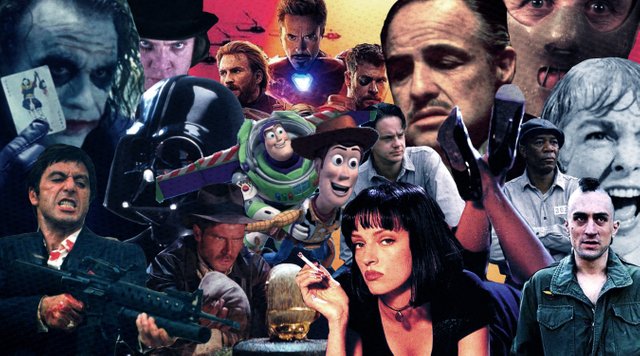
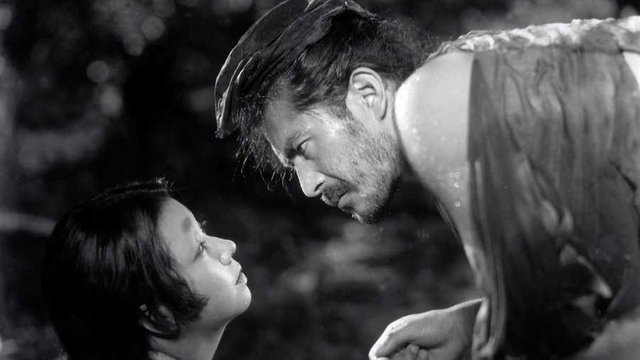
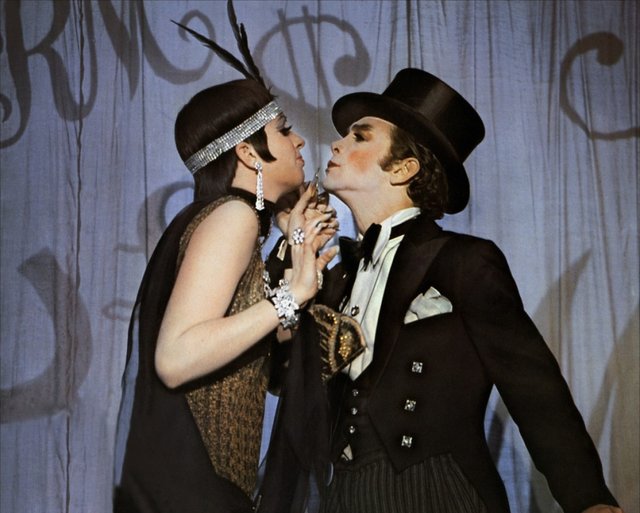
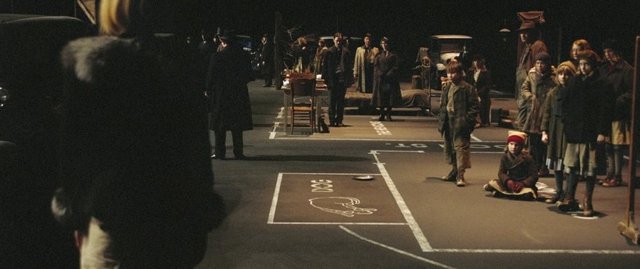
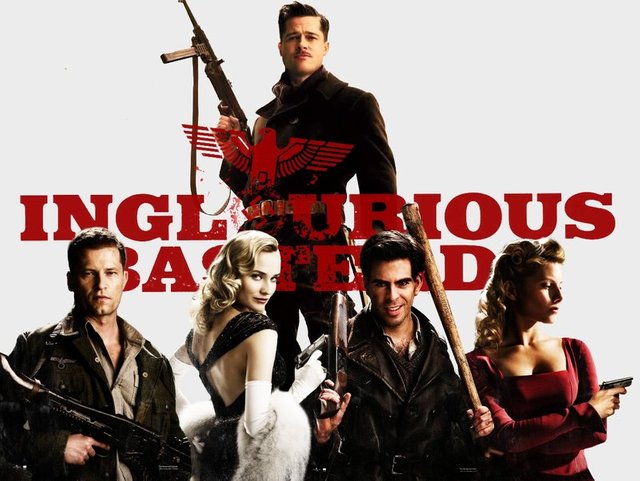
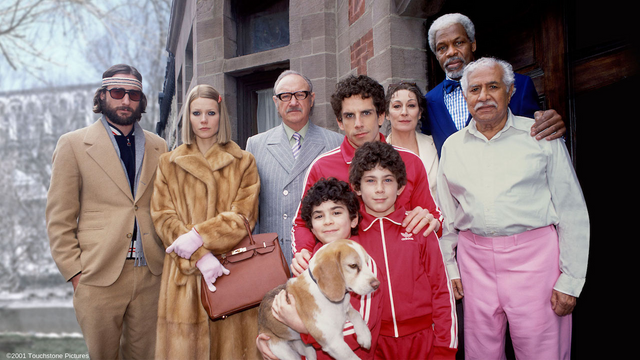
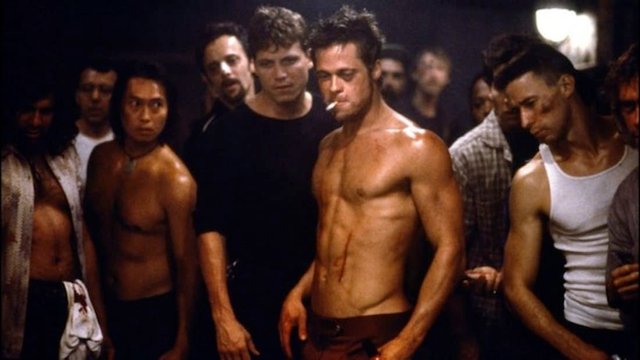

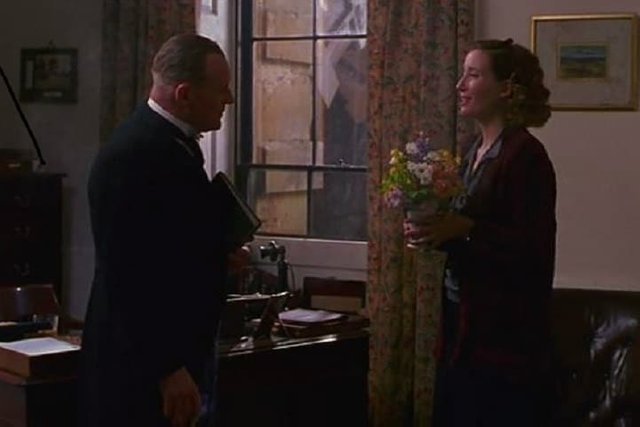
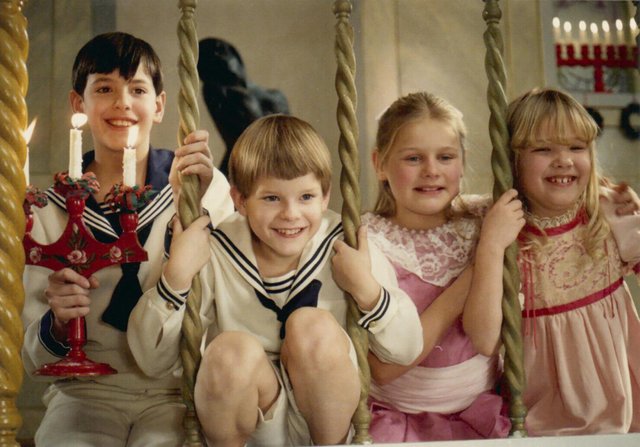

@anaerwu,
This is a wonderful example of why the way things "used" to be, might just have been better. My other half and I constantly talk about how upsetting it is, to see set furniture that was obviously built better, than anything we have today. Your choices of movies are also spot-on, in my opinion...
One of my favorite memories of my younger school days was watching the 1952 classic, "The Quiet Man", with John Wayne, Maureen O'Hara, and Barry Fitzgerald... Source...
This was, in my opinion, a perfect example of how one should provide their opinions, likes, and thoughts, on movies... the only thing I would suggest, and only meant out of love, and to ensure your awesome remains awesome, is providing sources for your photographs. I am a Moderator for the @steemterminal, and have seen many Steemians failing to do so, and getting caught up in the crosshairs of the @steemcleaners. I learned of your amazing post and skills, from my dear friend @anaclark... I look forward to seeing your continued awesome being spread on our blockchain!!!
Wes...
Thank you for your opinion it's always good to know that someone understands my point of view.
I appreciate your advice about the photographs, I'm trying to put the marks with the web site from which I copy the picture. I hope that it is enough.
Have a wonderful evening @wesphilbin and look forward to seeing you.
@anaerwu,
Oh yes... I understand, my friend. I am just an old fogey trying to spread positive energy on our Blockchain lol... I noticed on your Joker movie post, the hyperlink was embedded in the image. Again... not trying to down your excellent work. I tell you what, if you'd like to discuss more of the various ways we love sharing and helping, simply click the banner below... we'd love to see you at the @steemterminal!
This post was shared in the Curation Collective Discord community for curators, and upvoted and resteemed by the @c-squared community account after manual review.
@c-squared runs a community witness. Please consider using one of your witness votes on us here
Thank you for curation and vote :)
Posted using Partiko iOS
Congratulations @anaerwu! You have completed the following achievement on the Steem blockchain and have been rewarded with new badge(s) :
You can view your badges on your Steem Board and compare to others on the Steem Ranking
If you no longer want to receive notifications, reply to this comment with the word
STOPTo support your work, I also upvoted your post!
You make a head shaking point. As part of my college advertising and marketing program, two of my classes were video production I and II. Do you think that we spoke about film at all? Even a little?
I suddenly find it perplexing that a video production class can rationalize the void of educating beyond the mechanics of a camera (basically, how to push a few buttons).
Thank you for pointing this out.
Posted using Partiko Android
I'm not educated in cinematography that's something that comes in my way when my husband was studying. He had a lot of books and other staff. Sometimes I just have to watch some movies with him and that how my interesting in the movie starts.
I'm a religious historian and believe me during my school years we never have any movies lecture.
Posted using Partiko iOS